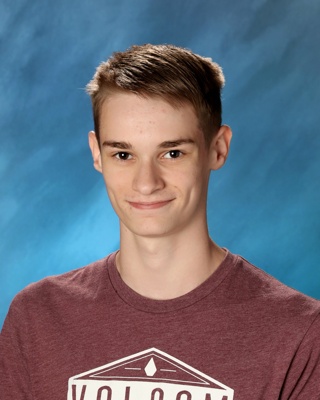After dozens of hours of hard work building your project, you and your teammate are finally prepared to present your trifold to the judges. When the judges begin to ask you questions, you confidently answer them—using the immense amount of knowledge you have gained through dedicated research. You start to feel good about your performance, but when you get to the last question, they hit you with a curveball; “what does your topic’s history mean to you?”
In 2012, Liberty was first introduced to the National History Day competition after Mrs. Olsen, a former teacher at Liberty, created a club where students could use their historical knowledge to create projects for the competition. Although Mrs. Olsen retired in 2022, history teacher Peter Kurtz has continued the idea after realizing how helpful it could be for students preparing for the AP test.
“I thought it was a really cool idea and I wanted to get my students involved, so I started looking at how I could integrate the objectives of the College Board to the competition,” Kurtz said. This way I could achieve as many goals as possible in the classroom.”
Now, the National History Day competition is a tradition that all AP World History students at Liberty take part in, creating projects every year which they present to one another in January. While a majority of these students don’t compete in the national competition, those who do are introduced to a unique experience that allows them to show off their hard work and knowledge after months of preparation.
“National History Day is great because it shows students how people approach exhibiting history and teaching history,” Kurtz said.
This year, over 20 Liberty students chose to compete in the regional competition for National History Day. One of these students, sophomore Angelina Chen, was able to reel in the judges in a unique way that allowed her to place second at the regional competition, qualifying her for the next level: the state competition.
“I really wanted to mimic the style of TED-Ed videos with animation in my documentary, which definitely looks nice for the judges,” Chen said. “It was very time consuming, however.”
Chen wasn’t the only student from Liberty to successfully qualify for state. Sophomores and teammates Jayden Yu and Mark Kovalenko were also able to qualify thanks to their thorough research and design.
“We had multiple sources that added a lot to the project along with good visuals that we used in our presentation,” Yu said.
Although Chen, Yu, and Kovalenko were able to find great success at the competition, there was one part that proved to be difficult for many competitors: the interview. In this part of the competition, judges interview competitors about their project, asking challenging questions that require them to perfectly know the ins and outs of their topic.
“You have to think on the fly a lot,” Yu said. “They hit you with very specific and hard-to-answer questions that force you to think quickly.”
There were also some questions that required a much more creative response. These questions were much less about information from the historical event itself, and more about testing the competitors creativity on the fly.
“One of the questions was like, “if you could bring anyone back from your historical event, who would it be?” So they really force you to think quickly and creatively,” Yu said.
After many hours of planning and research, Liberty competitors were able to take a lot away from their project, developing important skills such as time management and public speaking that will serve them well in the future.
“I’ve learned how to explain my topic to just about everyone,“ Chen said. “You have to use emphasis in your speaking rather than just using a bunch of complicated words.”
After their success at the regional competition, the three competitors have been hard at work refining their projects and presentations in preparation for the state competition on April 27. Through their hard work and dedication, the competitors were able to take a lot away from their experience with National History Day and experience a lot of growth.
“I was impressed by the students’ enthusiasm while doing the project as well as how much they were able to learn from it,” Kurtz said.



